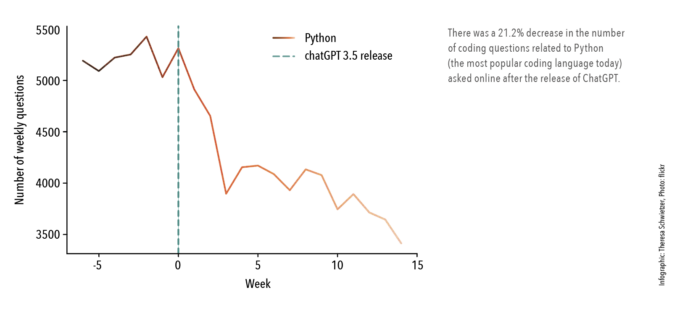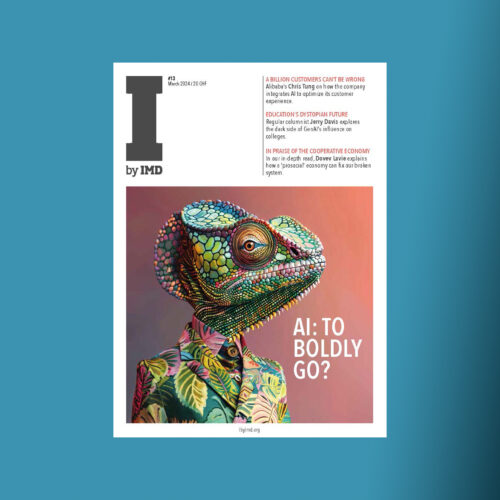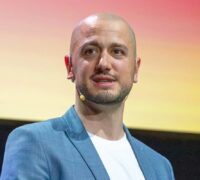Beyond being a technological marvel, OpenAI’s ChatGPT has become a societal phenomenon. The AI-powered chatbot broke the record for the fastest-growing app, amassing 100 million monthly active users within two months. Its popularity fueled the debate on the risks associated with AI. Goldman Sachs estimated that over 300 million jobs could be lost. Elon Musk, with more than 1,000 other tech leaders and researchers, signed an open letter urging a halt in the development of cutting-edge AI systems.
Despite these concerns, GenAI has taken root. For businesses, it is no longer a question of whether to invest in this fast-evolving technology but how to do so. Amid all the hype, what exactly are the real implications for decision-makers? In this article, based on my research, we will see how GenAI is impacting business practices and how you can stay up-to-date or even get ahead of the game by embracing it. In particular, we will see how GenAI can free up human talent to focus on more creative, complex tasks, with potential benefits for job satisfaction and well-being. We will look at the skills needed to make the most of large language models, exploring ways to use tools like ChatGPT to develop solutions for specific business challenges.
From the mundane to the meaningful
In the 1970s, when ATMs appeared in the US, it was feared that bank tellers would lose their jobs. However, a different story unfolded. The number of tellers grew at a faster rate than the rest of the US labor force. As research by James Besson, an economist at Boston University, suggests, this was likely due to cost savings implied by the innovation, enabling banks to open more branches.
Freed from the repetitive task of counting money, tellers could focus on more meaningful tasks beyond the capability of the machines, such as customer service.
The findings of my latest research paper, which studies the effect of ChatGPT on the way we code, echo the ATM story and have important implications for us all. The essence of coding is problem-solving, an intensive cognitive task crucial for all areas of business leadership. When coding, the aim is to achieve a result most efficiently with a given set of tools (commands). As many a coder will lament, more than half of the time spent coding is dedicated to debugging – or solving problems.
To study how coding had been affected by GenAI, I observed how the biggest online coding community, Stack Overflow, responded to the release of ChatGPT 3.5 in November 2022. Many coders refer to Stack Overflow to seek solutions for their coding problems by looking at existing questions and answers or by asking a new question.


 Audio available
Audio available




 Audio available
Audio available
